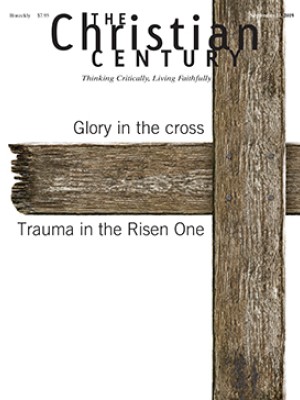Christian symbol judged ‘plainly constitutional’
A federal appeals court has ruled in favor of a county seal that contains a cross, citing a recent Supreme Court decision as the governing precedent.
The unanimous ruling by the Third US Circuit Court of Appeals, issued August 8, overturned a lower court decision that found the seal for Lehigh County in Pennsylvania violated the establishment clause of the Constitution’s First Amendment.
The nation’s highest court ruled in June that the Peace Cross in Bladensburg, Maryland, which was dedicated by the American Legion in 1925 and stands in a traffic circle, is constitutional. The appeals court described its decision as consistent with that ruling.
Read our latest issue or browse back issues.
“The Latin cross at issue here no doubt carries religious significance,” reads the opinion written by Judge Thomas M. Hardiman. “But more than seven decades after its adoption, the seal has become a familiar, embedded feature of Lehigh County, attaining a broader meaning than any one of its many symbols.”
The Freedom From Religion Foundation and four of its members sued in 2016 after commissioners of Lehigh County declined FFRF’s request to stop using the seal, which contains an image of a cross behind the county courthouse, along with other images related to farms and industries. The seal was adopted 75 years ago and is used on the county’s flag, vehicles, and website.
The appeals court opinion said the district court applied a three-pronged test used since the 1971 Supreme Court decision in the Lemon v. Kurtzman case. The Lemon test has been used to determine whether a government agency has a secular purpose for a religious symbol, while requiring that it primarily “neither advances nor inhibits” religion nor fosters “an excessive government entanglement with religion.”
The appellate court ruled that the Lemon test, which it noted has been ignored in some similar past cases, does not apply in the seal case.
“As the Supreme Court held in American Legion, such long-standing symbols benefit from ‘a strong presumption of constitutionality,’’’ Hardiman wrote in the opinion. “And because the thin record in this case does not overcome that presumption, we will reverse the District Court’s order.”
Diana Verm, senior counsel at Becket, the law firm that represented Lehigh County and has defended crosses used in other public displays, said the newest ruling further erodes the legal test created decades ago.
“This decision is another nail in the coffin of the Lemon test, making room for our nation’s founding principle that religion is not a blight to be scrubbed from the public square, especially when it represents our history,” she said.
The appellate court said the seal, like the Bladensburg Peace Cross, could have messages and purposes that have changed over time. “Courts are not to focus solely on the religious component in challenged government displays; they should consider the overall message conveyed and the broader context in which the display appears,” the court’s opinion reads.
The appeals court also said it agreed with the high court that removal of religious references in public symbols could be viewed as a sign of hostility toward religion.
“Consistent with the Supreme Court’s admonition on this score, we too decline to invite such dissension,” the opinion states. —Religion News Service






